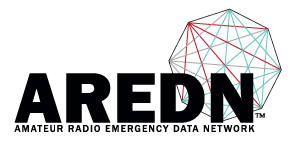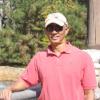The 2019 Baker to Vegas (B2V) Relay Race will be held 23-24, 2019.
The success of the mesh network during the 2018 B2V Relay Race has led the race organizers to request an expansion of the mesh network for the 2019 race. Based on their requirements, I have begun a preliminary plan calling for approximately three times as many mesh nodes as last year, which implies three times as many volunteers will be needed to support the mesh network.
Volunteers are needed to plan, test, deploy support and recover the mesh network for the race.
1. Mesh Coverage. In 2018, we established nodes along the California portion of the race course. In 2019, our top priority is to establish mesh coverage along the California portion of the race course. Second priority is to establish mesh coverage at from the Nevada State Line through Mountain Springs Pass and at the Westgate Hotel in Las Vegas. We will establish three teams as follows: a California Team, a Pahrump Valley Team, and a Mountain Springs/Vegas Valley Team. Each team would be responsible for planning the mesh network in their assigned sector (to include determining the mesh backbone sites), testing the connectivity at each site within their sector, deploying the mesh nodes for the race, supporting the mesh during the race, and recovering the equipment following the race.
2. Field Test. On-site field testing will take place on December 7-9, 2018. As in past years, the race sponsors (LAPRAAC) will reimburse participants for gas and meals and will provide lodging for the test (two persons to a room).
3. Mesh Application – VOIP. We will establish an IP telephone network to include one or more PBX servers and a phone directory. Support for hardware IP phones, ATA, and/or software based phones is to be determined by the VOIP team
4. Mesh Application – Medical Reporting Database. The Medical Director has requested a cloud based application, which would allow medical personnel at each site to initiate a web based incident report via laptop, tablet or smart phone, and submit updates, which could be reviewed by the Medical Director at Med Base.
5. Part 15 Operation. In order to facilitate the use of the mesh applications by unlicensed personnel and to provide encrypted security for medical data, we will operate in the unlicensed 5.8 GHz band using U-NII-3 channels under part 15.407 and in the unlicensed 2.4 GHz band under part 15.247. As much as possible, we will use directional antennas and narrow bandwidth in order to minimize noise from other unlicensed users and to maximize the power levels we are allowed to use on the unlicensed bands.
If you can volunteer to help to plan, test, deploy, support and recover the mesh network, please send me your contact information russ.chung@earthlink.net
We will have a telephone conference call on Tuesday, October 30, 2018 at 7:00 pm PDT to discuss the 2019 B2V mesh network. If interested, please send me your contact information and I will send you the dial-in information.
The success of the mesh network during the 2018 B2V Relay Race has led the race organizers to request an expansion of the mesh network for the 2019 race. Based on their requirements, I have begun a preliminary plan calling for approximately three times as many mesh nodes as last year, which implies three times as many volunteers will be needed to support the mesh network.
Volunteers are needed to plan, test, deploy support and recover the mesh network for the race.
1. Mesh Coverage. In 2018, we established nodes along the California portion of the race course. In 2019, our top priority is to establish mesh coverage along the California portion of the race course. Second priority is to establish mesh coverage at from the Nevada State Line through Mountain Springs Pass and at the Westgate Hotel in Las Vegas. We will establish three teams as follows: a California Team, a Pahrump Valley Team, and a Mountain Springs/Vegas Valley Team. Each team would be responsible for planning the mesh network in their assigned sector (to include determining the mesh backbone sites), testing the connectivity at each site within their sector, deploying the mesh nodes for the race, supporting the mesh during the race, and recovering the equipment following the race.
2. Field Test. On-site field testing will take place on December 7-9, 2018. As in past years, the race sponsors (LAPRAAC) will reimburse participants for gas and meals and will provide lodging for the test (two persons to a room).
3. Mesh Application – VOIP. We will establish an IP telephone network to include one or more PBX servers and a phone directory. Support for hardware IP phones, ATA, and/or software based phones is to be determined by the VOIP team
4. Mesh Application – Medical Reporting Database. The Medical Director has requested a cloud based application, which would allow medical personnel at each site to initiate a web based incident report via laptop, tablet or smart phone, and submit updates, which could be reviewed by the Medical Director at Med Base.
5. Part 15 Operation. In order to facilitate the use of the mesh applications by unlicensed personnel and to provide encrypted security for medical data, we will operate in the unlicensed 5.8 GHz band using U-NII-3 channels under part 15.407 and in the unlicensed 2.4 GHz band under part 15.247. As much as possible, we will use directional antennas and narrow bandwidth in order to minimize noise from other unlicensed users and to maximize the power levels we are allowed to use on the unlicensed bands.
If you can volunteer to help to plan, test, deploy, support and recover the mesh network, please send me your contact information russ.chung@earthlink.net
We will have a telephone conference call on Tuesday, October 30, 2018 at 7:00 pm PDT to discuss the 2019 B2V mesh network. If interested, please send me your contact information and I will send you the dial-in information.


We have postponed the mesh testing until we have more information on Verizon's support for the race. Verizon believes that it can provide cellular telephone and data coverage to all of the Nevada side of the course and most of the California side of the course with its portable satellite terminals and portable cell sites. Verizon will be conducting tests to verify its coverage capability. There is no need to deploy mesh networks in areas with Verizon cell coverage.
Until Verizon completes its tests it would be premature to commit resources to conduct mesh testing.